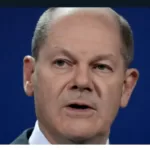Geopolitical tensions escalated by the Middle East conflict loom as the paramount peril to the global economy, as affirmed by the World Bank President, Ajay Banga, on Tuesday. In a keen assessment of the economic landscape, Banga expressed profound concern over the temporary breach of the 5 percent mark by the US 10-year Treasury yield, a development hitherto unobserved. This surge in the benchmark for global borrowing costs compounds the menace of a looming economic deceleration.
Furthermore, Banga astutely inquired, “How long before the next pandemic?” These words, uttered in the backdrop of the annual Future Investment Initiative in Riyadh, resonate with the ongoing turmoil in global geopolitics, as exemplified by recent events in Israel and Gaza. The confluence of these complex factors portends grave repercussions for the prospects of economic advancement.
Banga emphasized the dynamism of risks in the contemporary world, cautioning against fixating on a singular peril to the exclusion of others. While acknowledging that the developed world currently exhibits more favorable conditions than previously anticipated, he underscored the precariousness of the prevailing juncture.
Banga shed light on the imperative need for private sector investment in emerging economies, particularly in the realm of renewable energy. A staggering one trillion dollars is essential to catalyze this sector’s growth in these markets. Yet, the dearth of government resources and the limitations of multilateral development banks necessitate active involvement of the private sector and their substantial capital.
In summation, Banga sounded a clarion call, affirming that the paramount challenge on the horizon is to engage the private sector and unlock the necessary financial resources to address the pressing global economic concerns.






